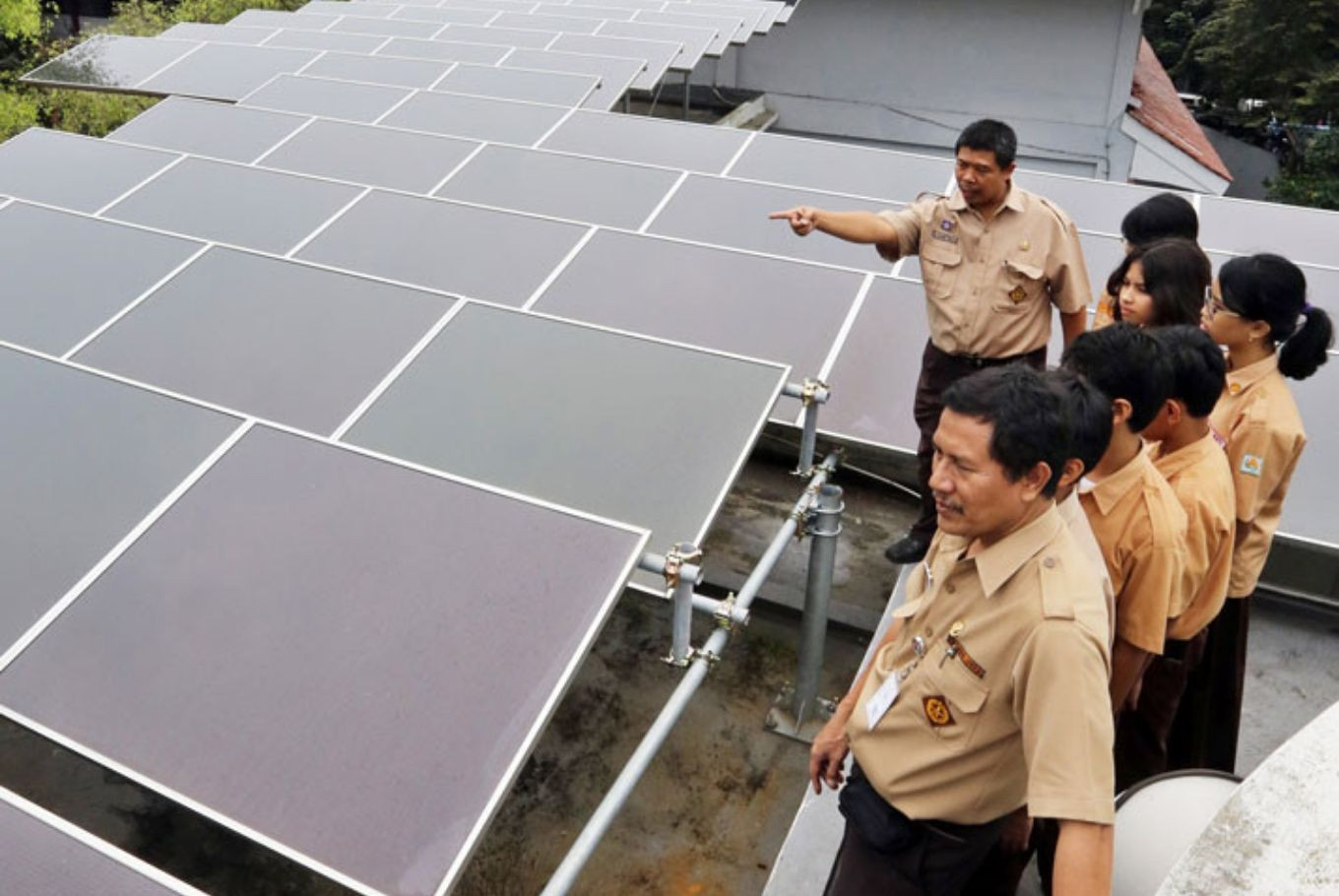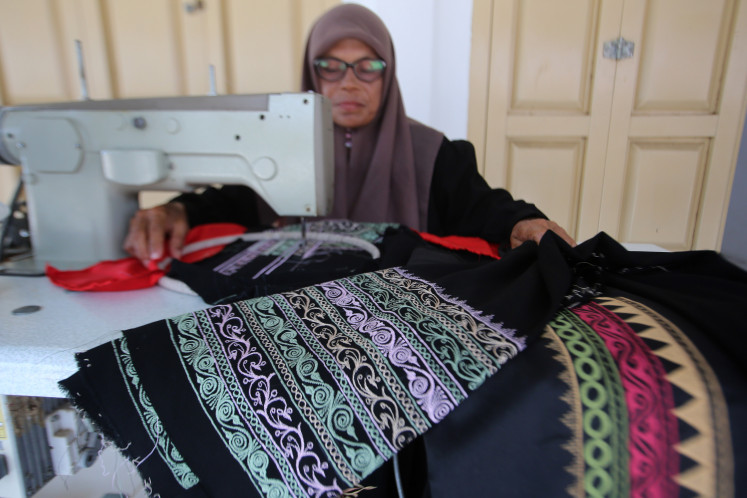Popular Reads
Top Results
Can't find what you're looking for?
View all search resultsPopular Reads
Top Results
Can't find what you're looking for?
View all search resultsSoutheast Asia’s energy transition needs to accelerate as COVID-19 highlights gaps in resilience
Change text size
Gift Premium Articles
to Anyone
T
he year 2020 was supposed to be a turning point in the global energy transition. The production and consumption of energy accounts for two-thirds of annual global anthropogenic emissions, making the energy transition central to delivering the promise of the Paris Agreement.
Countries were expected to take stock of their Nationally Determined Contributions to meeting the Paris Agreement’s goals and potentially strengthen their commitments to keeping global temperature increases to well below 2 degrees, with the ambition of reducing this figure to no more than 1.5 degrees. 2020 arrived with a sense of gathering momentum as the world entered its decade of delivery.
But over the course of the past few months, we have been up against a low-probability, high-impact catastrophe of global proportions. The speed, scale and intensity of the COVID-19 pandemic caught us off guard, necessitating the reallocation of resources and a collective conviction towards limiting the extent of the damage, and restoring normalcy to the economy and to society as soon as possible.
COVID-19 has proven to be a "black swan" event, threatening to undo the gains from the longest period of economic expansion in history.
The disruptions from COVID-19 have exposed vulnerabilities in the energy system. The short-term outlook for the energy transition is therefore at risk. The unprecedented speed and extent of the drop in energy demand, and the accompanying price volatilities and geopolitical implications have destabilized the global energy system.
The economic dimensions of energy transition mean that extreme price volatility has fiscal implications for countries and impacts the livelihoods of millions of energy sector workers. It also alters the competitiveness of renewable energy technologies and reduces incentives for energy efficiency. Resilience, not just in markets and infrastructure, but also in policy and cooperation mechanisms will be critical for an accelerated recovery in energy transition.
There are signs of revival, as energy demand seems to be gradually picking up. However, it might be longer before the economy reclaims the lost ground. Given the uncertain economic outlook, purchase of automobiles and domestic appliances might be postponed, infrastructure development could be paused, and non-essential industrial activities might take longer to restart.
This decline in energy consumption has an immediate effect on the environment, as skies have cleared in even the most polluted areas of China and India. While this may be a blessing in disguise for the environmental sustainability agenda, it should not be mistaken for progress, and also demonstrates the cost we need to pay for an effective energy transition.
Along with a sustainable and thriving ecosystem for future generations, an effective energy transition is also essential for economic growth and social development. In an increasingly turbulent global paradigm, disruptions are the new normal, and energy transition roadmaps need to integrate robustness against these disruptions. Resilience of energy transition, in the long-term, implies a strong enabling environment that sees the system bouncing back from unforeseen or exogenous disruptions. This includes the presence of strong political commitment, stable capital markets and access to investment, a steady pipeline of innovations, modernization of infrastructure, training human capital for future energy systems, etc.
The World Economic Forum's Energy Transition Index (ETI) benchmarks countries on these fundamentals for energy transition, along with the performance of their energy system on economic growth, environmental sustainability, and energy access and security. From the recently completed analysis for this year's index, the evidence of gradual progress on energy transition is strong.
Since 2015, more than 80 percent of the countries have increased their score on the ETI. Encouragingly, the gap between emerging economies and the leading countries seems to be narrowing, but much work remains to be done. Only a handful of countries have been able to make steady annual progress on the ETI over the past six years, which demonstrates the complexity and challenges of energy transition. Improving levels of regulations and political commitment, capital and investment, and technology development have been critical to unlocking this progress globally.
The ASEAN region holds a position of strong significance in the global energy transition, both as a producer and as a source of rising energy demand. The trajectory is definitely positive, though there is need to accelerate.
Average scores on energy security and environmental sustainability have increased since 2015, however economic growth and the development component of energy transition has been a challenge. This has been exacerbated as new evidence emerges on the extent of externalities of energy production and consumption, and challenges in reducing energy subsidies.
As ASEAN member states collectively work towards updating the “ASEAN Action Plan for Energy Cooperation”, the cascading effects of COVID-19 underscore the need to design and implement mechanisms for robustness and resilience of energy transition in the long-term. This includes the presence of strong political commitment, stable capital markets and access to investment, a steady pipeline of innovations, modernization of infrastructure, training human capital for future energy systems.
When we finally manage to put the global tragedy of COVID-19 behind us, there may be some valuable lessons learned. The energy transition challenge is similar to the pandemic in terms of scale, cascading effects across social and economic systems, more severe for vulnerable populations, and the necessity of a decisive, timely and concerted response.
Stakeholders need to be conscious that the fight against COVID-19 does not set us back in solving the critical socio-economic puzzle of global energy transition, otherwise the losses resulting from the virus will take an even greater toll on humanity.
***
Roberto Bocca and Harsh Vijay Singh are respectively head and project lead of Shaping the Future of Energy and Materials










